|
As Minister of Pitt Street Uniting Church in Sydney, it is a great joy and encouragement to stand in a powerful lineage of prophetic ministry. The more I come to know, the more I appreciate its vital significance to Sydney, and the wider world, in providing light, inspiration and hospitality to so many. As a community Pitt Street Uniting Church mourns the recent loss of Bishop Spong from our lives in this world, but rejoices in what he shared with us and so many others. We give thanks that we were able to offer a space for him to share God's love even when others were sometimes so hostile. Here above is a photo of the old Pitt Street Uniting Church's celebratory 'Bishop John Shelby Spong Greeting Card'!
(we still rejoice to wear that stole too :-) )
0 Comments
I've been troubled lately by 'inclusive' churches saying 'LGBTIQA+ are welcome here'. Such words involve good intentions but embody the problem they seek to address. For let's think about it. Do we say 'heterosexual/cisgender people are welcome here'? Or, even when we aim to tackle enduring sexism and racism, do we say 'women are welcome here', or 'black people are welcome here'? Now thankfully this is a step beyond 'all welcome here' - that now trite phrase on so many noticeboards and church communications. Like the offensive phrase All Lives Matter, 'all welcome' tends not only to erase our vibrant differences, but pays no attention to our particular experiences of power and (degrees of) acceptance. 'LGBTIQA+ are welcome here' is also better than 'we welcome LGBTIQA+ people here', which much more starkly represents the issue: differentiating 'we' - i.e those at the heart of the church community - from 'them', the sexually and gender diverse 'outsiders'. Yet it too also reflects the dominant approach of relating to sexually and gender diverse people as 'Other'. It fails to speak of the agency of LGBTIQA+ people our/themselves. It still keeps us/them in the status of guests, more or less unwelcome. It does not grasp that sexually and gender diverse people are as much the hosts and gifts of God's love as anyone else. Perhaps it is even time to leave 'affirmation' behind, and speak more directly of celebration and transformation? After all, sexually and gender diverse people are as much hosts as guests in Jesus' 'radical hospitality'...
 Sometimes Parliament is seen as a soap opera. If only it were! For though it remains so white and suburban, even TV’s Neighbours has just included a transgender character. It is a positive sign of the times but makes recent political developments all the more incongruous. For whilst the wonderful Georgie Stone enlivens Erinsborough High, in politics a green light is being given to repression. Why are we rushing towards religious discrimination laws when we’ve not yet even sorted our schools issues? So the question I want to pose is this: what kind of neighbours do we want to be as Australians together? Current parliamentary discussion is failing trans people - not least those of faith - in both process and specific proposals. Hence Equal Voices calls for postponement, into at least the middle of next year, to enable genuine consultation with those who will bear the greatest cost. The proposed Religious Discrimination Bill is a move towards enshrining disturbing forms of religious privilege and segregation which can only corrode our pluralist culture... 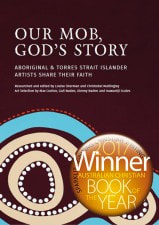 This year is the bicentenary of the Bible Society in Australia and it was wonderful to be given a lovely gift by one of our students which marks the occasion - Our mob, God's story : Aboriginal and Torres Strait Islander artists share their faith. (researched and edited by Louise Sherman and Christobel Mattingley ; art selection by Max Conlon, Gail Naden, Glenny Naden and Inawantji Scales ; with foreword by distinguished Aboriginal artist and educator Miriam-Rose Ungunmerr Baumann) Winner of the 2017 Australian Christian Book of the Year, Our Mob, God’s Story features the work of 66 Aboriginal and Torres Strait Islander Christian artists, well-known and unknown, from communities, towns and cities across Australia, from Tasmania to the Tiwi Islands, from Ceduna to Cairns, form Perth to Wonthaggi, sharing their faith in 115 paintings inspired by Bible verses and stories, many well loved, others not so well known, from Creation to the Crucifixion. All artists have generously given free use of their images, but retain copyright. It is a powerful and beautiful witness to God’s love for the traditional custodians of this ancient continent which we now call Australia, and to the talent of Aboriginal and Torres Strait Islander artists. Publication has been funded by a generous donor and all proceeds will go towards publication of Scripture in mother tongues of Aboriginal and Torres Strait Islander groups.  One of the most misleading sayings in some Christian quarters is that Jesus was born to die. Indeed, so concerned are some to talk about Jesus’ death that they would really like us to put a cross in the nativity scene! Now, of course, the meaning Christians find in the death of Jesus is certainly very important. That is part of why the Easter story is central to Christian Faith. Yet even Good Friday is not ultimately about death. For, as the Bible Society’s lively 2009 campaign expressed it, Jesus. All About Life is the true reality. As Jesus says in John’s Gospel (10.10): ‘I have come that they may have life, and have it to the full’. Death is a part of life and life involves a series of little deaths (losses and griefs) as well as physical death. So Jesus showed us how dying well can be done. Yet this was in service of life, which is the real purpose and invitation of God’s creation of us. For God wants us to live! Christmas, the feast of the birth of Jesus, is therefore not merely a beginning and prelude to Easter. It also witnesses powerfully, in its own right, to the heart of the Christian message. In God in Jesus Christ, we find our fullest life, which is eternal love, right here, right now, and for evermore... 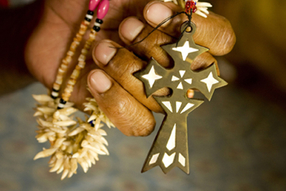 This year we will again be delighted to share in our parish the beautiful Advent booklet Prepare: An Advent Reflection (downloadable for free here) which is produced by Anglican Overseas Aid– find out more about its work here. The focus on the traditional Advent themes of hope, love, joy and peace is reflected in the work of bodies such as Anglican Overseas Aid in Christian work with our sisters and brothers and partners overseas. Our shared aspiration is that poor communities experience these themes of Advent in their daily lives. The reflections, drawn considerably from Anglican partners overseas, also help us however to understand the Good News of Jesus Christ more fully. The following reflection, from Melanesia, is just one example to help us grow, rejoice and share more deeply in God’s love for us all…  One of the interesting features of criticism raised by some to aspects of 'progressive orthodox' Christian faith is the perceived relationship between love, God and Judaeo-Christian scripture. Progressives can certainly be guilty of simplistic and sentimental thinking, including syllogistic fallacies around such themes. Yet it appears to me that conservative theology sometimes runs the risk of driving a wedge between the God of scripture and healthy, life-giving, human love. In a recent local marriage equality discussion for example, it was somewhat extraordinary to hear a vigorous opponent assert a radical difference between God and human love. In responding to a particular interpretation of 1 John 4.16b - 'God is love, and those who abide in love abide in God, and God abides in them' - they were right in drawing attention to the wider context of that verse, including the prevenient nature of God's love and primary focus in Christ. However such divine love was precisely embodied in the very human life and love of Jesus, expressing the presence of such love throughout creation, in all kinds of different ways. Part of the religious genius of historic Christian Faith has been the ability to hold these different elements in tension, understanding the creative paradox of i John 4.12 that 'No one has ever seen God; (yet) if we love one another, God lives in us, and his love is perfected in us.' Both love, and sin, in my view, are far more complex and mysterious than many 'plain Christian' theologies allow for. Perhaps part of the contrasting responses of Christians lies in how holy scripture is itself conceived. One young man for example said to me recently that the Bible and Christian Faith were not really about love but about salvation. He is on a genuine journey of exploration into these matters and we had a cordial and mutually illuminating conversation. Yet such a view reflects a very common but restricted framework which some Christians have imposed, and continue to impose, on the Bible. In reality of course such a lively and diverse set of scriptures have many contrasting themes. Salvation is a vital, and perhaps particularly distinctive Christian, one. Surely however salvation is but one way of approaching love, rather than the reverse? For all its misuse over the centuries, what has always 'saved' holy scripture is the longing for, and experience of, God which human beings have found in it. Rather than being the Procrustean structure of a salvation machine, the Bible is witness to the eternal love story of God, humanity and creation, embodied, for Christians, most fully in Jesus Christ. 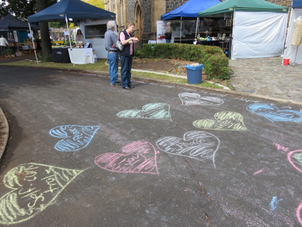 When I worked in the national and NSW ecumenical council offices in Sydney, I once had a close colleague who had previously been employed in HR departments for big business. He was a lively contributor to our shared endeavours but it took him a while to become used to office email and conversational exchange. ‘I just can’t get my head round all of this’, he said one day, ‘people keep signing off with ‘best wishes’ and ‘blessings’ and say ‘thankyou’ for all kinds of simple things. I am being disoriented by kindness.’ Now my friend may have had a particular bleak earlier work experience. Many secular workplaces have very positive atmospheres as well as respectful staff protocols. Christian workplaces can also be full of unstated, and sometimes open, hostilities and negative undercurrents. The ecumenical office we worked in certainly had its mix of all of that! Yet it is true to say that, where human beings are intentional about giving thanks and sharing praise, a positive spirit surely develops. Even when we do not feel particularly thankful or gracious, such practice can transform us and others. Our parish stewardship and thanksgiving developments this year have certainly helped us on the way to being a more thankful community. They have also made us more capable of responding to our diocesan call to grow in faith and generosity. It has been wonderful to see how so many people have responded positively to the challenge to consider how to become more open to God’s love and share our particular blessings with others. Even those who have been a bit nervous about considering the financial and other implications seem to be have been at least touched by this life-renewing spirit of consideration. May this long continue to grow and flourish among us! What highlights will we take forward from our stewardship and thanksgiving initiative this year? For many the Thanksgiving Festival in August was certainly a huge delight. On the Saturday we shared a wonderful community day at St Luke’s, with food, music, children’s activities, chalk drawings and a welcome for all, including to several visitors. It was indeed a lovely example of what we can do to use the St Luke’s site as a ‘Minster’, sharing blessings for all. Then, in the evening, we had a terrific parish meal together, with great food prepared by our generous cooks and a feast of music from Robin and his band. ‘We must do this again’, was the feeling of many. Thanksgiving is infectious!  The great song of Jesus’ mother in the Bible is often known by its Latin title of Magnificat. This means ‘let magnify’ or ‘let thanks and glory be given’. It is the cry of Mary when she realises that she is pregnant and is full – or will soon be full - of the love of God in human form (that is the boy-child we know as Jesus). With all the joy and excitement and anticipation she feels, Mary is crying out as loud as she can – let thanks and glory be given, let life come to birth. Mary’s whole heart, her whole being, is caught up in thanksgiving and in the process of bringing new life into being. Can we join in with her? Advent – the immediate weeks before Christmas Day – is a great time for renewing the spirit of thanksgiving and for pondering on what is coming to birth, or might come to birth, in each of us and in our broken world. What gifts do we want to thank God for? What joyful things can we see in our lives and/or in the world around us? What new things is God doing in us that we want to bring into being? For each of us is called to sing, and live, our Magnificat. Mary's song is just one more reason why we have renewed our Season of Gratefulness initiative for Advent this year. This is not blind to the pain and struggles of our lives and world. Rather this is also about justice, seeking to rejoice, like Mary, in the presence of that Love which has brought light out of darkness in the past, and will again: not least, as we, if we would but know it, can ourselves be pregnant with the Spirit of God. My soul glorifies the Lord, my spirit rejoices in God, my Saviour. He looks on his servant in her lowliness; henceforth all ages will call me blessed. The Almighty works marvels for me. Holy his name! His mercy is from age to age, on those who fear him. He puts forth his arm in strength and scatters the proud-hearted. He casts the mighty from their thrones and raises the lowly. He fills the starving with good things, sends the rich away empty. He protects Israel, his servant, remembering his mercy, the mercy promised to our forebears, to Abraham and his descendants for ever.  Laying the foundations of a labyrinth at St Luke’s has been a beautiful symbol of our parish journey together. For we are named after someone – St Luke – who wrote the Gospel of Luke and the Acts of the Apostles to encourage us to see our life and faith as a journey into the heart of God and a journey into deeper relationship with all those around us. Like the first disciples on the Emmaus Road, we are called to experience God in Jesus Christ as we travel with our parish vision: to be more deeply ‘focused in Christ, joyful and inclusive, compassionate in witness’. Over the last few months we have been praying and reflecting together about the next steps we should take. It has been a very positive experience. For we have begun to discover new pathways building on our current strengths and shared Christian traditions. We have identified a MAP (short for Mission Action Plan) which we hope and trust will help us walk forward together over the next 3 years. Unlike the final stage of the labyrinth, it will not be fixed in stone. Some things will work. Some things will not. Other surprises will come our way. Yet our MAP will help us from straying from the pathway, helping us better attention to God’s love among us. in both our inward and outward looking journeys. There are six aspects to our MAP, like the six petals at the centre of our labyrinth. By far the highest priority identified by members of the parish is developing our ministry with younger people, children & families (including seeking a new paid member of staff to guide and support us). Alongside this is a second priority of engaging with the new Pilgrim course – for existing and new members of our parish to grow as Christians. Thirdly, we particularly seek to develop a growing sense of the St Luke’s site as a, cathedral like, Minster for our city: as an accessible place of prayer for all (‘focused in Christ’), an open meeting place for people of different backgrounds (‘joyful and inclusive’), and a lively place to explore and bring together ancient and contemporary understandings of life, truth, justice and beauty (‘compassionate in witness’) – ‘in the heart of the City, in the heart of God’. May God bless us therefore as travel on. |
AuthorJo Inkpin is an Anglican priest serving as Minister of Pitt St Uniting Church in Sydney, a trans woman, theologian & justice activist. These are some of my reflections on life, spirit, and the search for peace, justice & sustainable creation. Archives
July 2024
Categories
All
|
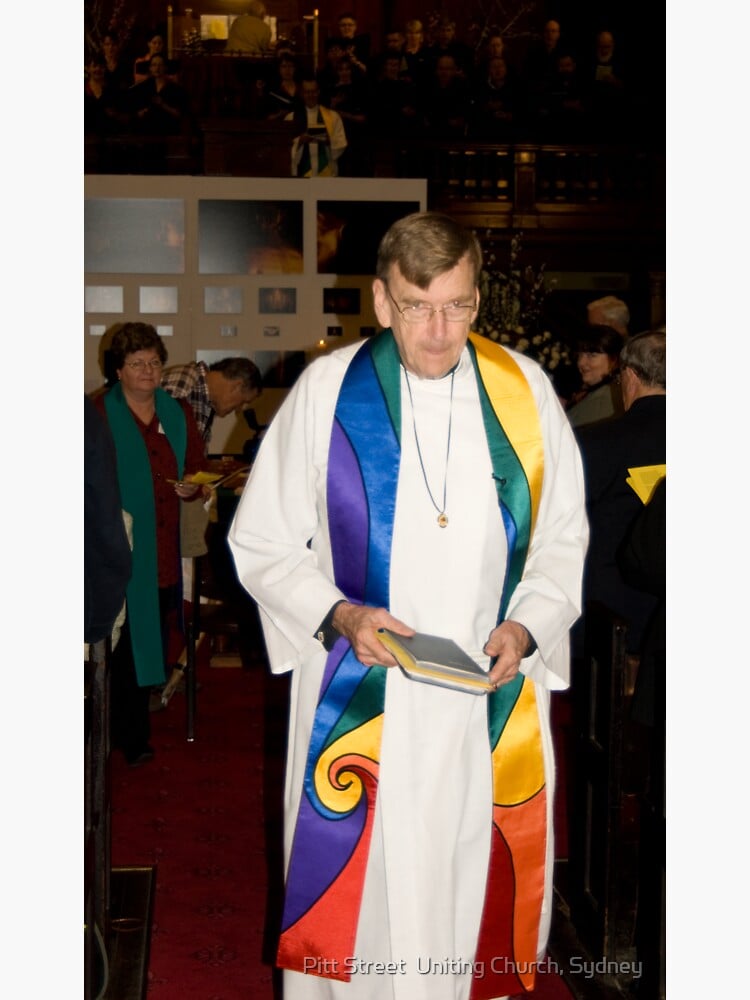
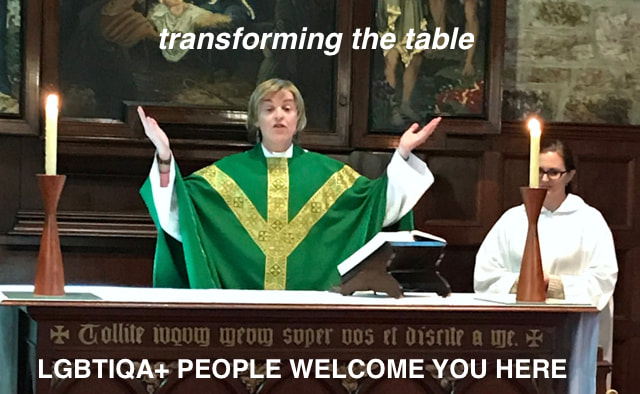
 RSS Feed
RSS Feed